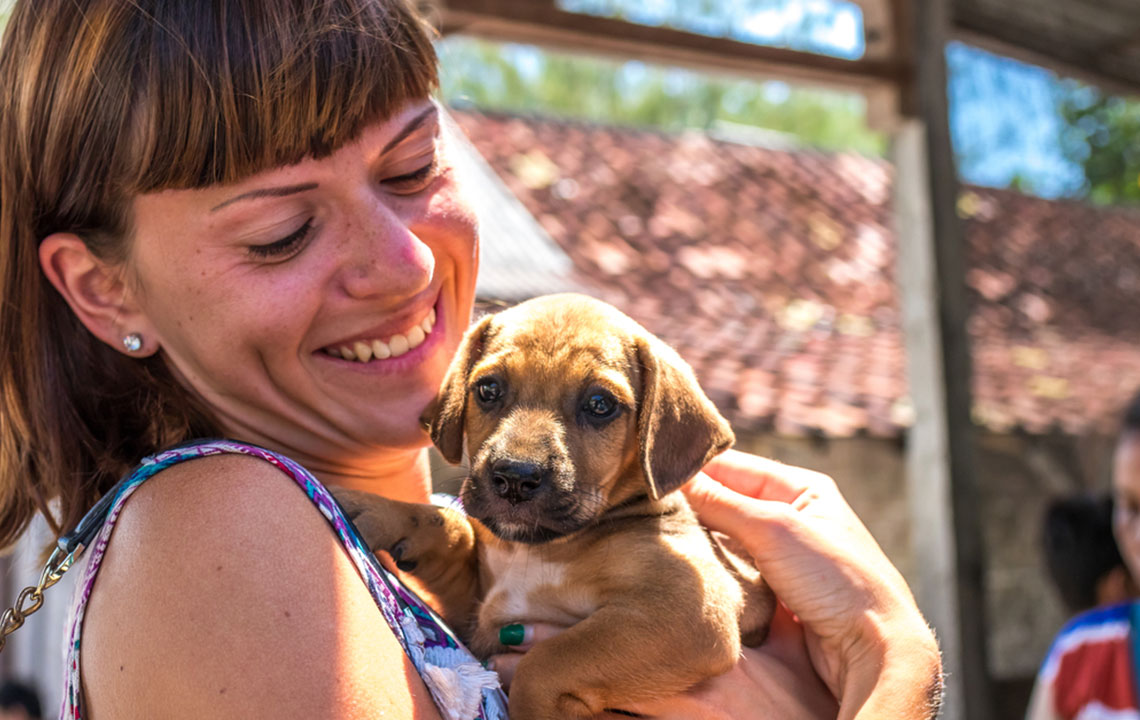Comprehensive Guide to Adopting and Caring for Your New Puppy
Adopting a puppy from a shelter is a noble act that can save lives and provide a loving companion. This comprehensive guide covers essential aspects such as medical care, nutrition, safety preparations, training, and legal responsibilities to ensure a successful adoption and long-term happiness for your new furry friend.

Comprehensive Guide to Adopting and Caring for Your New Puppy
Every year, millions of dogs and cats are facing euthanasia in shelters across the country, highlighting the urgent need for more adoption efforts. Choosing to adopt a puppy from a shelter or rescue organization instead of buying from breeders or pet stores is not only a compassionate decision but also a life-saving act that transforms an animal’s destiny. If you're considering welcoming a puppy into your home, it’s essential to be well-informed about the crucial aspects of both the adoption process and ongoing care to ensure a smooth transition and a lifetime of happiness together.
Your Adoption Choice Has Powerful Impact
While there are numerous puppies available for purchase, countless rescue animals are still awaiting loving homes. Your decision to adopt can significantly reduce the number of animals unnecessarily euthanized and promote a culture of animal welfare. Adoption is a meaningful act that supports shelters and helps break the cycle of overpopulation, ultimately saving lives and providing deserving animals with a chance for happiness and companionship.
Adopting a puppy from a shelter or rescue organization is an honorable decision that can have a lasting positive impact on the animal’s life. However, prior to bringing a puppy home, it’s important to understand that rescue puppies may need extra medical attention due to possible previous neglect or health issues. Providing adequate healthcare, proper nutrition, a secure environment, and consistent training are essential steps to help your new furry friend adjust comfortably and thrive in their new environment. Here are key considerations to keep in mind to make your adoption process smooth and effective.
Understanding Medical Needs and Healthcare Costs
Many shelter puppies might have underlying health issues or have experienced neglect, which makes veterinary checkups and treatments more crucial. Be prepared for potential veterinary expenses to maintain your puppy’s health. Regular vaccinations, parasite prevention, dental care, and spaying or neutering are fundamental to ensuring your puppy’s long-term health. Establishing a relationship with a trusted veterinarian early on will help address any medical concerns promptly and keep your puppy in optimal condition.
Nutrition and Dietary Requirements
Feeding your puppy high-quality, balanced dog food tailored to their age, size, and breed is fundamental. Proper nutrition supports healthy growth, a strong immune system, and vibrant energy levels. Avoid giving your puppy toxic foods such as chocolate, grapes, onions, and macadamia nuts, which can cause severe health issues or poisoning. Providing clean, fresh water at all times is equally important. Consult your veterinarian for specific dietary recommendations and treats that promote your puppy’s overall wellbeing.
Preparing a Safe and Puppy-Friendly Home
Creating an environment conducive to safety and comfort is vital. Remove or secure wires, cords, and small objects that could pose choking hazards. Store cleaning supplies and chemicals out of reach, and ensure that any sharp or fragile items are safely tucked away. Designate a specific area with soft bedding where your puppy can rest and feel secure. Establishing boundaries within your home helps prevent accidents and teaches your puppy which areas are off-limits, fostering good behavior from the start.
Patience and Gradual Adjustment
Rescue puppies may initially experience fear, anxiety, or shyness due to their past experiences. Patience and gentle reassurance are crucial during this phase. Allow your puppy time to acclimate to their new surroundings at their own pace, providing consistent routines and positive interactions. Offering treats, gentle play, and lots of affection will help build trust and confidence, reducing stress and fostering a strong bond between you and your new pet.
Early Training and Socialization
Starting training early is vital for developing a well-behaved and confident dog. Use positive reinforcement techniques such as praise and treats to encourage good behavior. Teach basic commands like sit, stay, come, and leash walking. Socializing your puppy with other dogs, people, and different environments helps prevent behavioral issues later on and promotes a balanced temperament. Consistency, patience, and kindness are the keys to successful training.
Selecting the Right Breed for Your Lifestyle
Different breeds have diverse temperaments and activity needs. It’s essential to choose a breed that complements your lifestyle—active individuals may prefer energetic breeds like Labradors or Border Collies, while those seeking calmer companions may opt for Basset Hounds or Bulldogs. Consider your living situation, activity level, and family needs to ensure a harmonious match. Well-considered breed selection leads to a happier, more compatible relationship with your new puppy.
Financial Responsibilities and Budgeting
While adopting from a shelter often minimizes initial costs, ongoing expenses such as quality food, regular veterinary care, grooming, and supplies should be thoughtfully budgeted. Unexpected health issues can arise, so setting aside funds for emergencies is wise. Planning your finances beforehand ensures you can provide your puppy with consistent care and attention throughout their life—this is essential for their happiness and health.
Long-Term Commitment and Dedication
Owning a puppy is a rewarding journey that requires a long-term commitment. Puppies typically become adult dogs in 12-24 months, and their care needs extend over their entire lives. Dedication, consistent training, and love are critical to raising a well-adjusted pet. Be prepared for daily walks, regular play, and routine health checks. Your commitment will forge a strong bond and guarantee your puppy’s happiness, well-being, and safety for years to come.
Understanding Legal and Regulatory Responsibilities
Depending on your location, you might need to obtain a license or registration for your new pet as per local laws and regulations. Additionally, understanding containment laws and leash requirements is crucial for responsible pet ownership. Ensuring that you comply with legal obligations not only helps you avoid penalties but also demonstrates responsible and ethical care for your puppy.





